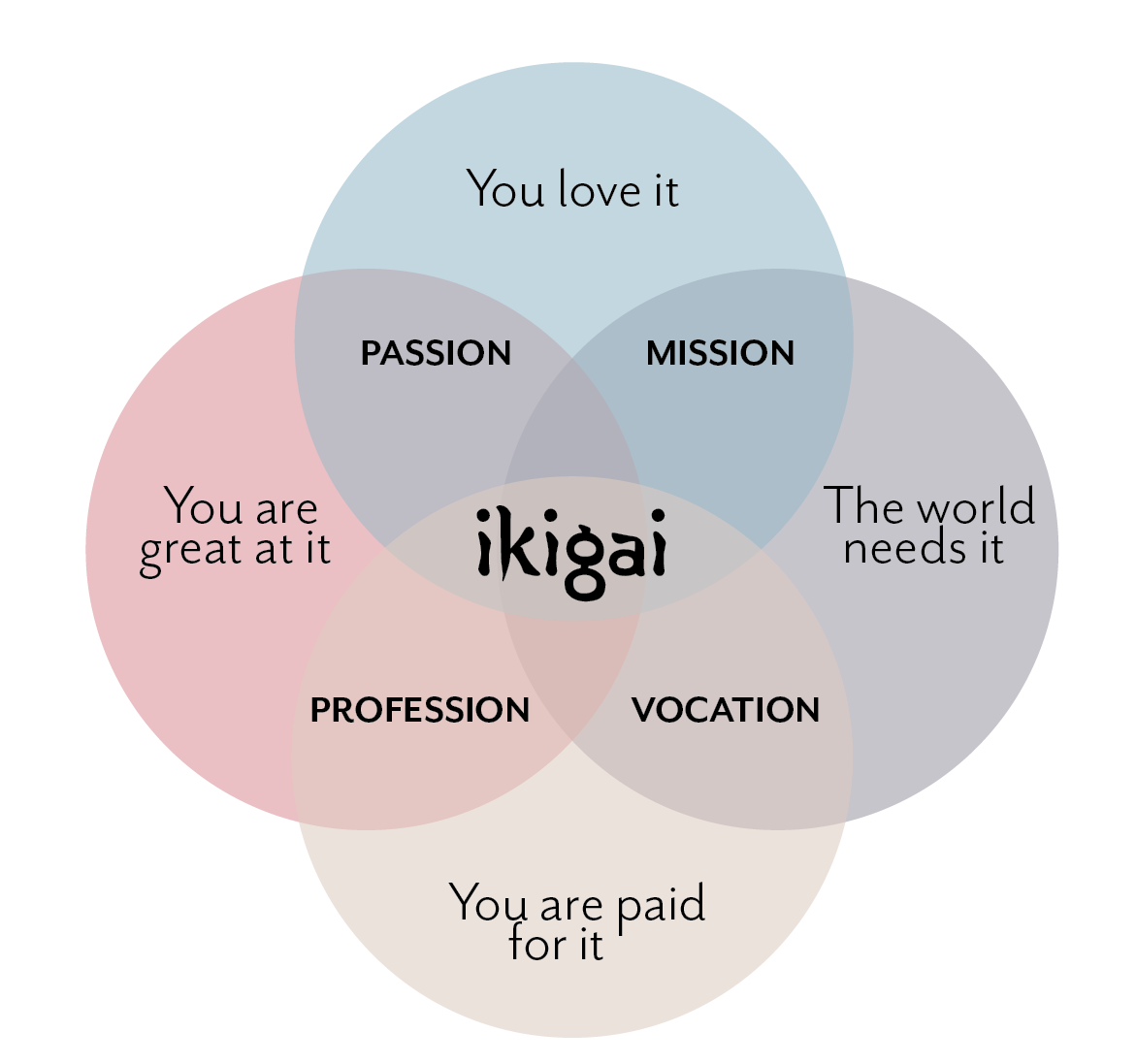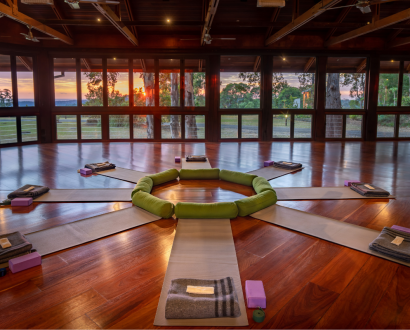Why do you do what you do? It sounds like a simple question but, in the context of ikigai, it’s the key to living and working in a more productive and fulfilling way. According to Japanese tradition, your ikigai lies at the heart of four overlapping circles – what you love, what you do well, what the world needs, and what you’re paid for.
The word has no direct English translation, but Associate Professor Akihiro Hasegawa, who conducts research into ikigai at the Toyo Eiwa University in Japan, suggests: ‘reason for living’, ‘self-actualisation’, ‘meaning of life’, ‘purpose in life’, or perhaps all four.
Ikigai is still relatively unfamiliar outside Japan, but the broad concept has been taught for many years. Authors including Eckhart Tolle, Rick Warren and Deepak Chopra have written dozens of books on the subject of finding your purpose, and in yoga philosophy this is an aspect of dharma.
Repa Patel, director of Leading Mindfully, draws on the prevailing principles of ikigai to help business leaders connect to their passions and align with their higher purpose in their role. “Understanding the impact this has on you, your teams and your wider organisation can help you harness your energy to achieve personal and organisational goals,” she says.
Strengthened leadership
When Melinda Crole was asked to act as interim CEO of YMCA Australia, she hesitated.“I had the confidence and support of the board, but I wasn’t 100% convinced I was the right person for the job,” she says.

Then one of Crole’s directors introduced her to Patel. “Repa supported me professionally by encouraging me to think about who I am, why I’m here, and how I could bring my best to this particular role,” says Crole.
“Once I understood my meaning and purpose, I realised I could be the leader I needed to be and bring a strength to the organisation that hadn’t been there before.”
At the time, YMCA Australia had just embarked on the challenging process of transforming the 150-year-old organisation. “We had started to focus on creating space for young people to develop, grow and be inspired to make a positive impact,” says Crole.
“This fit beautifully with my own purpose of maintaining the human rights of children and young people, and listening to their voices. Like finding my ikigai, I had been through a process of uncovering what I’m best at, what I love, and what the organisation needs.
When there’s a confluence of these three elements, I think you’re bound to get the best outcome in the work that you do, and for most of us that includes the fourth aspect of ikigai – what you’re paid for.”
In November 2016, Crole accepted the offer of a permanent position as CEO. “Finding my purpose significantly increased my confidence as well as my capability, including a deepening of my leadership skills,” she says.
“My personal style of leadership is very collaborative, and I am now much better at recognising where other people’s strengths lie. It’s also far easier to make good decisions, and do so for the right reasons, when you always have a clear purpose in mind.”
Knowing your ikigai can also help in the search for a new role. “Most people can list their skills but find it difficult to explain the ‘how’ of what they can do,” says Patel. “Building your sense of purpose into personal marketing documents such as your résumé and online profiles provide a deeper insight into the qualities you would bring to an organisation. This could be a key differentiator.”
Drawing on research
According to Patel, some C-suite executives are sceptical about the value of introspection, so she makes a point of highlighting the facts. “I always begin by referring to the research,” says Patel.
“I work at the intersection of mindfulness, neuroscience and positive change, and there’s plenty of literature to support the benefits of looking inward to find your purpose.” It can take a while to distil the essence of what makes life worth living, she continues.
“When we’re identifying what we love, for example, we need to get beneath superficial answers such as ‘I enjoy golf’, just as your true meaning and purpose is even deeper than your feelings for your family,” says Patel.
She usually starts with a strengths assessment because most of her clients are familiar with this concept. Patel then watches for changes in energy as they talk. “People really do light up when they’re talking about their passion,” she says. “When I see that, I feed what they said back to them to gauge whether it rings true.”
Lightening the load
Finding your ikigai may not shorten your working hours, but it could help to lighten the load and improve your overall sense of wellbeing. “I don’t have much spare time at the moment because the transformation is all-consuming, but I do have the energy and drive to go to work every day and give my very best,” says Crole. “When your work is your purpose and passion combined, it’s something you’re happy to live and breathe.”





